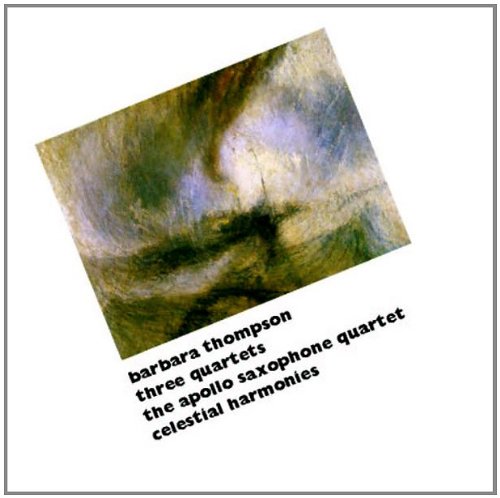Composed by Barbara Thompson for The Apollo Saxophone Quartet
Saxophone Quartet No. 1 in five movements is in reality one piece, divided into five sections. There are recurring phrases throughout, distanced by pace and mood. All the saxophones are used as musical rhythm machines, with melodies and textures being taken in turn by individuals. Occasionally all four saxes combine with the same phrase, and then swoop apart like birds. Saxophone Quartet No. 2 from darkness into light is six movements based on different colours. From the primeval scream to the calm and peaceful finale with a chorale scored for the wonderful sound of four soprano saxes, sounding like female voices. Saxophone Quartet No. 3 body language is a continuous piece based on a series of dance motifs: from the mad latin of the second movement Carnival to the more traditional atmosphere of the fourth movement County Ayre. There are five bridges, entitled Serena I-V, linking the beginning and end of each of the four movements. Each Serena is calm and peaceful, and they are all variations on the same theme, breathing spaces between the movements.
“Jazz rhythms met minimalism in a lyrical embrace. Motifs and patterns intertwined and chased tails in music instantly attractive, but never vacuous. Allied to the music’s ebullience came the phenomenal skill of the Apollo Four. Thompson’s writing made their fingers scamper off their knuckles in search of new swoops and gurgles, or the silkiest transformation from furnace blast to the softest whisper this side of the Milky Way.”
Geoff Brown’s review of an April 2003 concert in the London Times
About the Apollo Saxophone Quartet
Established at the Royal Northern College of Music in 1985, the Apollo Saxophone Quartet set out to develop an original repertoire from a wide variety of cultures and disciplines. By commissioning and performing new works by today’s leading composers, the group have firmly maintained their position at the forefront of contemporary performance, playing at major festivals and concert venues throughout Europe and Japan.

